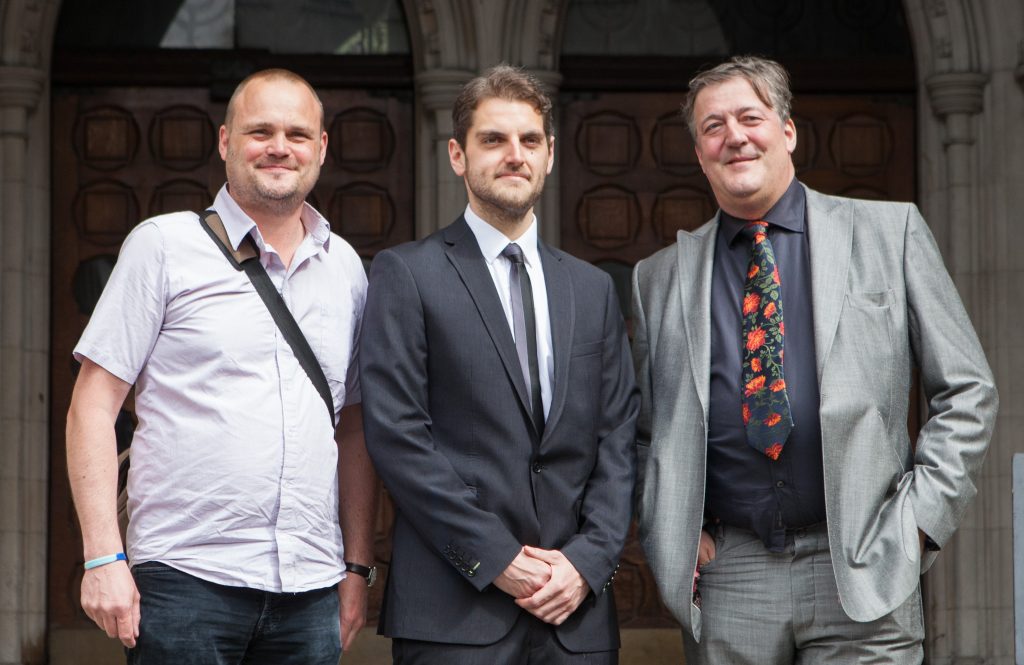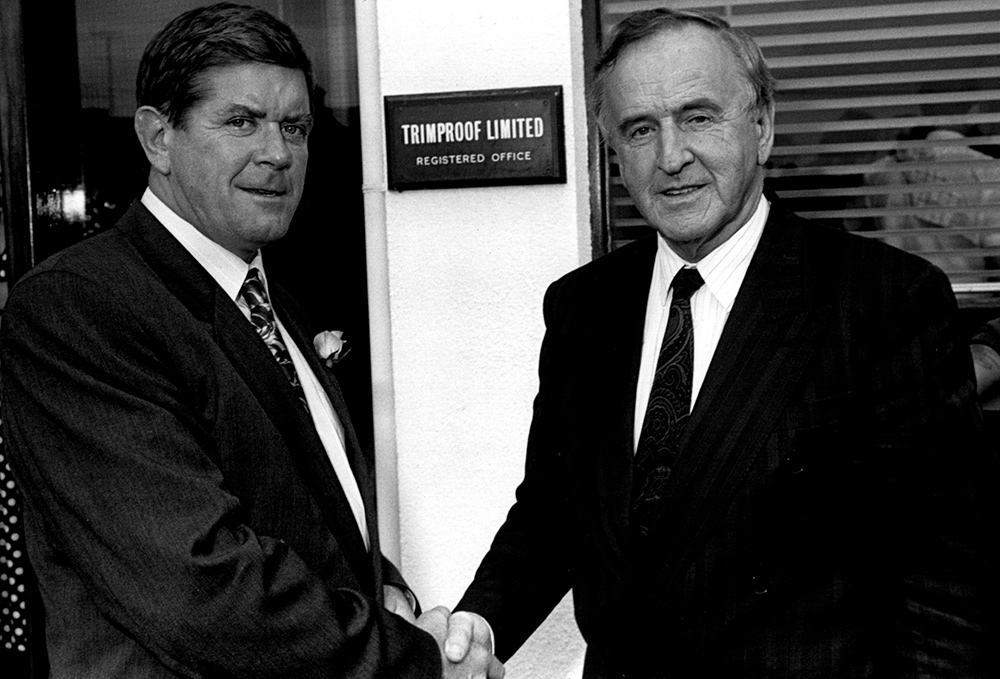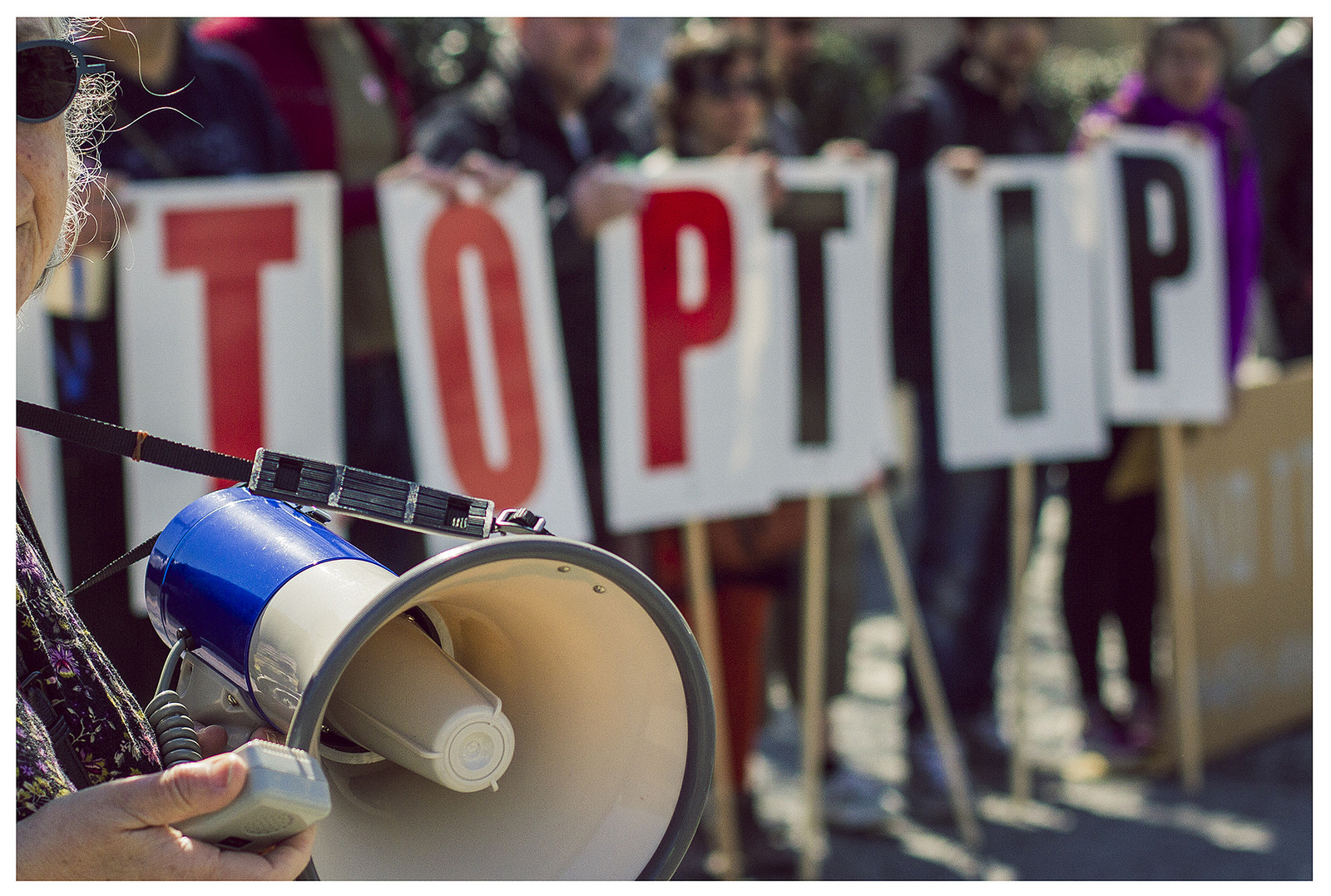Freedom of speech, often called freedom of expression, is thought of by many as the cornerstone of a liberal democracy.
One of the founding fathers of the United States, Benjamin Franklin, stated that:
Freedom of speech is a principal pillar of a free government; when this support is taken away, the constitution of a free society is dissolved, and tyranny is erected on its ruins.
But what do we know about freedom of speech? Here’s what the cases tell us:
It can help in the most bizarre of situations…
R v Paul Chambers

Al Murray, Paul Chambers and Stephen Fry outside the High Court outside the ‘Twitter Joke Trial’ appeal hearing on on 27 June 2012
This case, also known as the “Twitter Joke Trial” was about a tweet Paul posted while at an airport. When cold weather resulted in his flight from Robin Hood Airport in Yorkshire being cancelled he tweeted:
Crap! Robin Hood airport is closed. You’ve got a week and a bit to get your shit together otherwise I’m blowing the airport sky high!!
This resulted in his home being raided by anti-terror police and he was charged under the Communications Act 2003 with sending a ‘menacing message’. Many public figures felt that such a response was absurd with Stephen Fry offering to pay his fine and legal fees.
While initially the Magistrates’ Court found that the tweet was of a “menacing nature”, the High Court reversed this decision. They said that the tweet did not cause fear in those who read it and, in any event, the 2003 Act did not intend to create a new exception to freedom of speech and its standards must be upheld.
It helps journalists publish on matters of public interest
Reynolds v Times Newspapers [1999]

Albert Reynolds (right) with Donal Kinsella at the Trimproof Limited plant on 3rd July 1992
Albert Reynolds was a former Prime Minister of Ireland. Upon his resignation in 1994, The Times published an article implying that he had misled the Irish Parliament by suppressing vital information from them. Albert claimed that this was not true and was therefore defamatory.
The Times thought they should be allowed to publish these allegations because a defence called “qualified privilege” was available to them. This meant they make these accusations even without full proof.
The House of Lords (the UK’s then-highest court) ruled in the journalists’ favour, finding that:
…freedom to disseminate and receive information on political matters is essential to the proper functioning of the system of parliamentary democracy cherished in this country.
But freedom of speech has its limits (at least in Europe)
Norwood v UK [2004]

Anthony Norwood, an organiser with the far-right political party, the British National Party (BNP), had been convicted under the Public Order Act 1986 for putting up a BNP poster in window of his flat. The poster contained an image of the Twin Towers on fire accompanied by the words “Islam out of Britain – Protect the British People”. He argued that his criminal conviction for displaying the poster was a direct violation of his right to free speech which should allow him to make such offensive and provocative statements.
The European Court of Human Rights disagreed. They said that the poster was a direct attack on all Muslims in Britain. Human rights are designed to protect religious groups and such a “general, vehement” attack on them could therefore not be protected speech.
Like when it comes up against national security…
R v Shayler [2002]

David Shayler, a former member of the security services, disclosed to the press a number of classified documents relating to matters of intelligence and security. He also published an article exposing security secrets in the Mail on Sunday. He argued, among other things, that it was in the public interest for these secrets to be published given that they exposed abuses of power by the security services.
The House of Lords decided that while there had been a breach of David’s right to freedom of expression this had to be balanced against national security. They found that in this instance the latter prevailed and David was not entitled to divulge the information he did.
And it can’t make people broadcast offensive images either
R (Pro-Life Alliance) v BBC (and others) [2003]

In the run up to the 1997 general election the Pro-Life Alliance Party wanted to air a party election broadcast which contained graphic images of abortion. This was prohibited by the BBC and other broadcasters and the matter went to court.
The House of Lords said that the broadcasters were within their rights to refuse to broadcast offensive material.
- Check out our post on why the right to free expression matters here.
- For our post on how human rights protect the free press, click here.
- For the story behind a very important free press case, click here.







